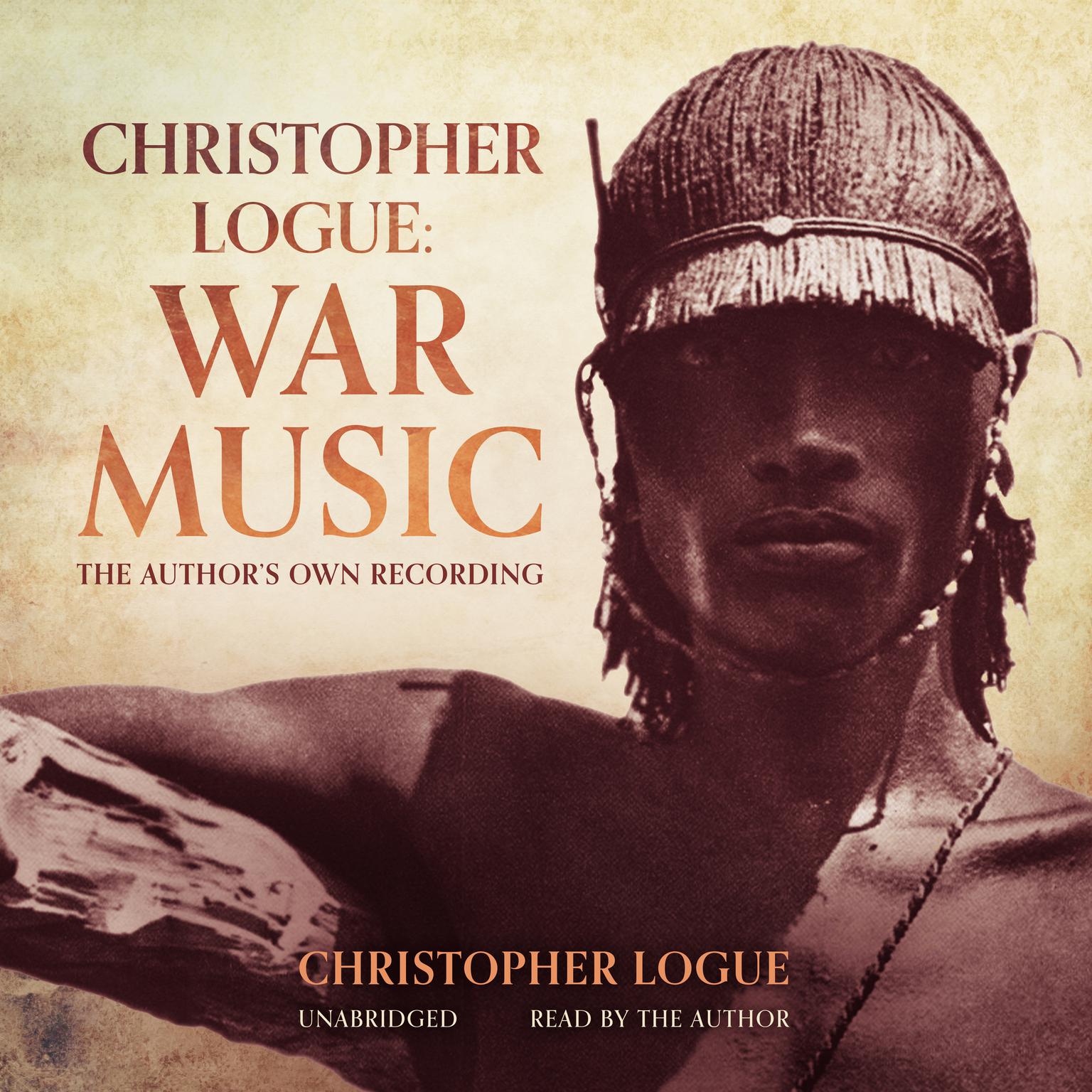 Play Audiobook Sample
Play Audiobook Sample
Christopher Logue: War Music: The Author’s Own Recording Audiobook
 Play Audiobook Sample
Play Audiobook Sample
Quick Stats About this Audiobook
Total Audiobook Chapters:
Longest Chapter Length:
Shortest Chapter Length:
Average Chapter Length:
Audiobooks by this Author:
Publisher Description
War Music is a dramatic poem based on Homer’s Iliad. Logue worked on it for more than forty years and it was left incomplete at his death in 2011. At the time of this recording it was divided into three parts: Kings, The Husbands, and War Music, the last of which is further divided into three sections: Patrocleia, GBH, and Pax. War Music later became the poem’s general title. Commissioned in the first instance by BBC Radio, War Music changed slightly as it developed, which means that there are a number of small discrepancies between the published and the recorded work.
The Iliad itself is a continuous narrative of some 16,000 lines and is generally thought to be the product of a poetic tradition as much as or even more than of an individual poet. It tells the story of the war fought over the departure of Helen from Greece to Troy.
Download and start listening now!
“Logue’s vivid and excellent poem is…a thorough reconstruction…The care with which the original has been re-brushed is wonderful. The bright colors and light of the Middle East hit you like a hammer. The sighing humanity of the mortals stands above the brittle gods, who just want to see a good punch-up. Logue has produced a mesmeric poem that bears comparison with Eliot.”
— Paul Pickering, British novelist and playwright
Quotes
-
“The war it portrays is real, and harsh, and horrible; but the music is real, too.”
— New York Times -
“War Music is at once an ancient and a modern poem, a triumph of virtuoso rhetoric.”
— New Statesman -
“One can hardly help oneself from singing the lines Logue puts in our mouths as well as our minds.”
— New York Review of Books -
“Less a translation than an adaptation. Less an adaptation, in fact, than an original poem of considerable power.”
— The Observer (London) -
“The careful reader may notice the care of Logue’s line endings, the sy hum of his iambic pentameter, the lovely repetition of ‘sigh’ and the complex imbrication of sighing sounds. It is through such care that Homer is so triumphantly renewed for our age.”
— The Guardian (London) -
“[Logue’s] considerable work in theater and film as actor, playwright, and screenwriter nourished the poetry, much of which was dramatic in nature, and also helped make him one of his generation’s finest readers of verse.”
— London Review of Books -
“A work of great virtuosity, something completely original in style and stance…Faithful in tone and spirit to the essential Greekness of the old poem. More than this, the characters who figure are drawn with economy and clarity—they spring off the page…a small ‘triumph of skill and beauty.’”
— London Magazine -
“I am crazy about it. Haven’t seen such poetry in ages.”
— Henry Miller, American writer, artist, and author of Tropic of Cancer -
“Never was blood bloodier or fate more fatal.”
— Louis MacNeice, Irish poet and playwright -
“A lasting harvest.”
— George Steiner, multiaward-winning writer and literary critic -
“One of the landmarks of twentieth-century poetry.”
— James O’Brien
Awards
-
A London Times Pick of the Best Audiobooks of 2021 in Poetry Reading
Christopher Logue: War Music Listener Reviews
Be the first to write a review about this audiobook!
About Christopher Logue
Christopher Logue (1926–2011), poet, playwright, scriptwriter, and actor, was born in Portsmouth, Hampshire. He moved to Paris in 1951, where he published his first books, Wand and Quadrant; Seven Sonnets; and Devil, Maggot, and Son. He won the Paris Review / Bernard F. O’Connor Award and was made a Commander of the Most Excellent Order of the British Empire for his contributions to literature.




